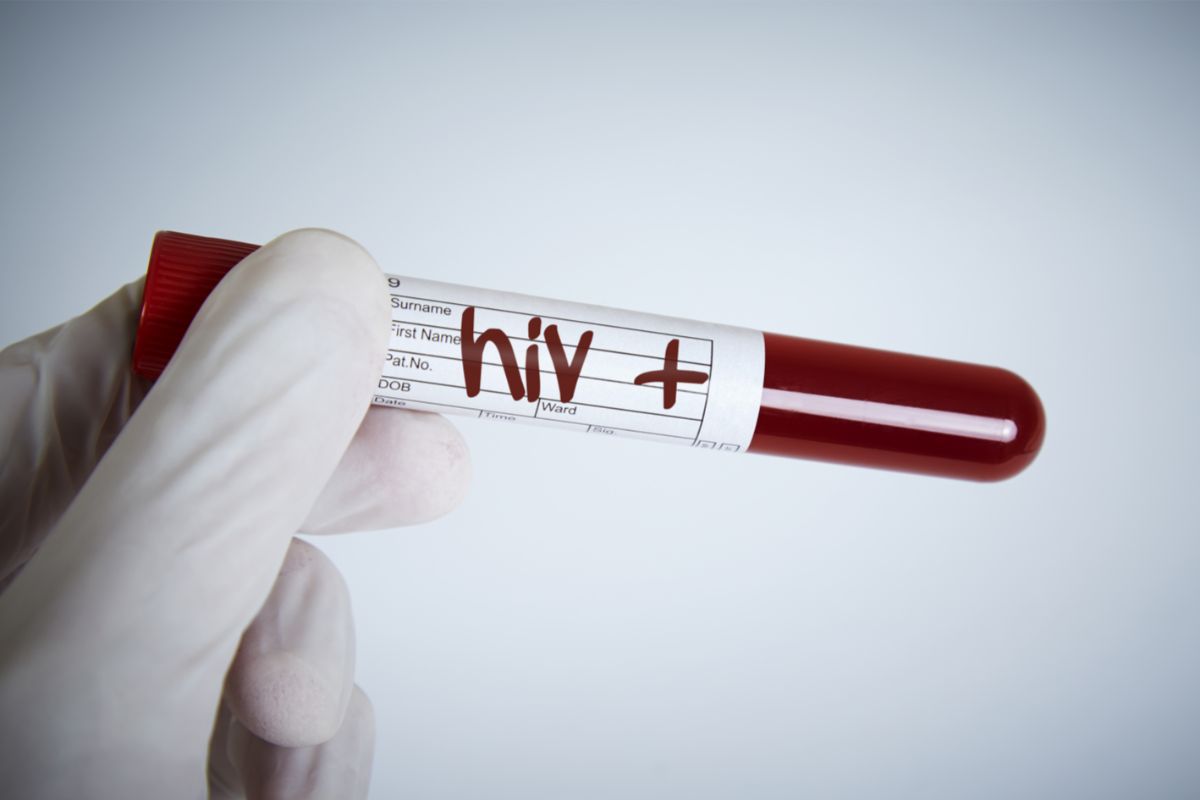Human immunodeficiency virus (HIV) can develop into a life threatening condition. It works by damaging your immune system, which in turn can seriously trouble your immune system into battling infections and diseases. Actually what is the main symptoms of HIV?

HIV is normally contracted by being in close contact with someone who already has the virus – often through the transmission of bodily fluids, unprotected sexual contact or sharing needles, which is common with drug users.
Another way the virus can be transmitted is through the mother whilst pregnant or through breastfeeding.
However the virus is contracted, it’s important that we understand what the main symptoms of the virus are – so we’ve written this helpful guide to help you know what signs to look out for. Read on to learn more.
HIV Symptoms And Development
HIV progresses, especially when no treatment is sought out for the virus. To understand the symptoms, it’s best that we go through the stages of the virus and explain what you may notice.
Acute HIV (Primary Infection)
Within two to four weeks after the virus has been contracted by a person, many people will exhibit some flu-like symptoms which could potentially last for several weeks.
This is known as acute HIV and can present itself through the following symptoms:
- Headaches
- Fever or high temperature
- Muscle pains and aches
- A sore throat
- A rash that won’t go away
- Join pains
- Diarrhea and vomiting
- Swollen lymph glands, especially near the neck
- A painful cough or recurring cough
- Night sweats
- Unexplained weight loss
It’s important to note that these symptoms during this stage can be so incredibly mild that many people may not even notice them.
However, if the virus is not noticed and treatment is sought – the virus can quickly develop into the next stage.
Chronic HIV (Clinical Latent Infection)
This is the stage of HIV infection when the virus is highly present in the white blood cells and in the body generally.
This stage of the infection can also be symptomless and can last for several years.
Over time and even with treatment, it’s possible for the virus to develop into the next stage.
Symptomatic HIV Infection
During the progression of the HIV virus, your immune cells are becoming more and more damaged and the development of the virus continues as the virus cells multiply.
At this point, you may start to show some of the following symptoms from mild infection to chronic signs of infections:
- Fever and high temperature
- Severe fatigue
- Unexplained weight loss
- Diarrhea
- Shingles
- Swollen lymph glands and swollen lymph nodes
- Oral infection (thrush)
- Pneumonia symptoms
Once the virus has reached this stage, it can quickly progress into the next stage – especially if no treatment has been sought out. The next stage is stage three.
HIV Stage 3 (AIDS)
Deaths from AIDS have significantly reduced over the years due to the development of treatments, further research and more knowledge of the condition.

Luckily, due to these factors – many people with HIV do not develop AIDS, however some still do. This can be due to the fact the person has no knowledge that they have the virus and show no symptoms.
If someone does not seek out medical treatment when they contract HIV (see also ‘Best HIV Medication & Recommended Treatments‘), within eight to ten years, they can develop AIDS. This is now when the body’s immune system has been severely damaged.
At this point, you are very likely to develop other diseases or illnesses that your body would usually have been able to fend off. These illnesses are usually referred to as opportunistic infections.
Some of the symptoms at this time can include the following:
- Sweating
- The chills
- Fever that keeps coming back or does not go away
- Chronic diarrhea
- Extreme fatigue and weakness
- Significant weight loss
- Strange white spots on your tongue
- Skin rashes that do not go away
- Swollen lymph glands
See A Doctor
If you suspect you may have contracted HIV, it’s critical that you seek out medical advice as soon as possible.
It’s important that you are as open and honest with your doctor as possible as they can provide the right advice for you.
Additionally, if you have any of the above symptoms anyway – you should seek medical advice as it can be a sign of numerous health conditions.
What Causes HIV?
HIV is caused by a virus – normally down to sexual intercourse, sharing needles, close contact with the infected through blood or saliva, or the mother with their child.
In some cases, blood transfusions have been performed and lead to the contraction of the HIV virus with patients.
How AIDS Develops
AIDS is usually confirmed by doctors when the CD4 T-cell count falls below 200. This is normally after around ten years of having the HIV virus untreated.
Doctors may also diagnose someone with AIDS if they have a complication which can define AIDS such as a very serious infection or cancer.
How HIV Does NOT Spread
Due to many misconceptions, it’s important that we inform you of how HIV does not spread.
We know some of the main causes as shown in this guide, but below are some of the myths. The virus cannot be spread by:
- Normal skin contact (hugging, hand shakes etc.)
- Water
- Bug bites
Who Is At Risk Of HIV?
Anybody can contract HIV, but there are some high-risk groups. These include the following:
- People with STIs
- People who have unprotected sex
- Drug users
- Those with a weakened immune system already
What is the First Sign of HIV?
If you think you might have contracted HIV, it is important to get tested. This way, you can begin treatment immediately, which can reduce your risk of spreading the virus to other people.
There are a number of symptoms you may notice, depending on the stage of HIV that you have. Some symptoms will be more common than others.
In the early stages of HIV, you may experience fatigue. You can also have swollen lymph glands. These are part of your body’s immune system and help it fight the virus. Fever and chills can also occur.
Another characteristic of acute HIV infection is open sores. These develop in your mouth, esophagus, penis, and anus. The sores are painful, and only a small percentage of people develop them.
Other symptoms can include weight loss and diarrhea. These symptoms are common in people with acute HIV, but not everyone gets them.
Skin rashes can also be a symptom of HIV. They look like pink, swollen bumps. Rashes can occur either early or late in the disease.
Early HIV symptoms can be similar to those of common illnesses, such as the flu. However, if you have a fever and other flu-like symptoms, it is best to see your doctor.
People with HIV can experience a variety of symptoms, including fatigue, nausea, and muscle soreness. Women are also at a higher risk for bone loss.
Women can also experience menstrual cycle changes, vaginal infections, and early menopause. Symptoms can vary from person to person, and can also be different if you are taking medicine for HIV.
What Are Some Early Symptoms of HIV?
When you have HIV, you may notice a number of symptoms. Some of them are flu-like, while others are more severe. They can be related to other illnesses or health conditions, so it’s best to consult with a medical professional to get a proper diagnosis.
The most common early symptoms of HIV are high fever, diarrhea, muscle aches and headaches. You may also notice changes in your menstrual cycle. Other signs of HIV include swollen lymph nodes.
Flu-like symptoms are the body’s natural response to the virus. Fever, chills, and sweats can occur. These symptoms often last for a few days to a few weeks. If you notice any of these symptoms, it’s important to go to a clinic for treatment.
Another symptom you might notice is fatigue. There are many causes for this, including a weakened immune system, unhealthy lifestyle, and a viral infection.
Aside from symptoms that are commonly associated with other health problems, HIV can cause an itchy rash. The rash can look like boils, pink breakouts, or a flat red area on your skin. It can also be painful.
The rash can occur on any part of your body, including your mouth, groin, and armpits. Symptoms can be mild or severe, and they can last from a few days to a few weeks.
In addition, you might have open sores on your anus or esophagus. These sores are usually very painful. However, not everyone who has HIV will have these symptoms.
What Are the Signs of HIV in Man?
HIV is an infectious disease that can cause a wide range of symptoms. Some are common, and some are rare. You should not be afraid to ask your doctor about the signs of HIV in men and women.
In the early stages of the disease, a person may not have any symptoms. But some people develop severe flu-like illness, which is the body’s natural response to HIV infection. The flu-like symptoms can last for several weeks, but they are not always indicative of HIV infection.
Some people develop oral problems, such as thrush and candidiasis. Candidiasis can result in an overgrowth of yeast that causes painful white patches in the mouth. This infection can also affect the lungs and digestive tract.
Some people with acute HIV will develop nausea, vomiting and diarrhea. They may also lose weight. These symptoms may be accompanied by shivering, sweating and chills.
A skin rash is another common symptom of HIV. Skin rashes can appear like pink breakouts, and can last from two to three weeks.
Pain while peeing is one of the most common HIV symptoms in men. This can be a result of inflammation of the prostate, or a bacterial infection.
If you are thinking of starting a new sexual relationship, it is important to get tested for HIV. Tests are available at medical clinics, substance use programs, and even community health centers. Testing can help you to avoid further infection, and it can prevent HIV from spreading to others.
Symptoms of HIV Positive in Females
Symptoms of HIV in women who has HIV will experience different symptoms and complications than a man with the virus. For example, women have a higher risk of developing cancer and osteoporosis. Women may also experience menstrual disruption.
A woman’s immune system is weakened during an HIV infection. This makes her vulnerable to other infections. As a result, she will have a harder time fighting off bacteria and fungi. Some of these infections can cause severe symptoms.
Women with HIV may develop a yeast infection, called oral candidiasis. This infection causes a thick white coating to form over the mouth. It also causes pain and swelling.
Women with HIV are also more likely to develop cervical cancer. They should be screened every year. AIDS-related cancers are usually more aggressive than cancers in people without the disease.
Another common symptom is a rash. Rashes can appear on the skin in various shapes, such as pink breakouts or boils. The rash can last for two to three weeks. If the rashes do not clear up within a few days, seek medical help.
Women with HIV have a higher risk of heart attacks. Heart attacks can cause pain in the back, neck, jaw, or stomach. Other symptoms include headache, nausea, shortness of breath, and fatigue.
In addition, women with HIV have a greater risk of developing sexually transmitted infections (STIs). These STIs include gonorrhea, chlamydia, and genital herpes.
A woman’s menstrual cycle can be disrupted and skipped. She will also have more vaginal infections. Besides causing pain, these infections can be hard to treat.
How Long Does it Take to Show Symptoms of HIV?
HIV is an infectious disease that can cause you to feel healthy for a long time, but it can eventually destroy your immune system. It’s important to get a test if you think you might be infected.
If you have been exposed to HIV, the first symptoms usually appear in the early weeks of infection. These include flu-like symptoms like fever, fatigue and a sore throat. The symptoms are very infectious, so you can spread them to others.
The early stages of the disease don’t always result in severe symptoms, but they can still be serious. Many people with the disease experience digestive problems, including diarrhea. Also, some people get frequent or severe herpes infections.
You can also get opportunistic infections, which are illnesses that occur because your immune system is weak. Depending on the infection, you might need to take antibiotics to stop it.
There are a number of different opportunistic infections that people with HIV can get, including herpes simplex ulcers, esophagitis and pneumonitis. Some people also develop cancers.
Although you can have an opportunistic infection, it’s important to seek medical advice and stay hydrated. You should also see your doctor if you have a dry cough that persists without relief.
Fever is the most common initial sign of HIV. It’s caused by the virus moving into your bloodstream. Other symptoms may include sweating, chills and a sore throat.
If you have been exposed to HIV, you can expect to have the condition for several years. However, it can progress to AIDS in as little as 10 years.
HIV Urine Symptoms
Infection with HIV causes a wide range of symptoms. Some people do not develop any symptoms at all. Others have very mild symptoms.
The disease is usually treated with antiretroviral therapy. Antiretroviral drugs work by stopping the virus from replicating inside the immune cells. This keeps the virus from spreading and stops the onset of infections. However, these medications can cause side effects.
Women with HIV can experience vaginal yeast infections. These infections can be painful and cause vaginal itchiness. Also, some women with the infection experience more frequent vaginal infections.
People who are HIV-positive can also be at risk for cervical cancer. In women, this complication can affect the bones. It is a good idea to get tested. You can do this by contacting a sexual health clinic.
One of the first signs of infection with HIV is fever. If you are experiencing a fever, you should see a doctor. Other symptoms can include vomiting, diarrhea, muscle aches, and night sweats.
Another common symptom of infection with HIV is a rash. A rash may be red, purple, or brown. Typically, a rash is seen in the areas where the body is most inflamed.
A common opportunistic infection with HIV is tuberculosis (TB). TB is a serious disease that is associated with HIV.
Men with HIV can also have a high risk for liver and kidney disease. TB is the leading cause of death for people with AIDS.
Another type of infection with HIV is a fungal infection called Pneumocystis pneumonia. This infection occurs when the immune system is weakened.
The Bottom Line
HIV can progress and show lots of different symptoms throughout its cycle. It’s important that you know these symptoms and what to look out for.
If you, or someone you know is showing any of these symptoms or suspects they may have somehow contracted HIV – it’s critical that you seek out medical advice as soon as possible.
- Understanding Male Reproductive Health: A Complete Guide - February 2, 2025
- Simple Healthy Skin Habits for Radiant Skin - December 6, 2024
- Unlocking the Connection Between Nutrition and Mental Health - December 3, 2024

![Prenatal HIV Transmission What Is Perinatal Hiv And When Does It Occur? [Explained]](https://alphanutrition.com/wp-content/uploads/2022/08/What-Is-Perinatal-Hiv-And-When-Does-It-Occur-Explained-150x150.jpg)

![Do Condoms Always Prevent HIV Transmission? [Everything You Need To Know] Do Condoms Always Prevent HIV Transmission? [Everything You Need To Know]](https://alphanutrition.com/wp-content/uploads/2022/08/Do-Condoms-Always-Prevent-HIV-Transmission-Everything-You-Need-To-Know-150x150.jpg)




